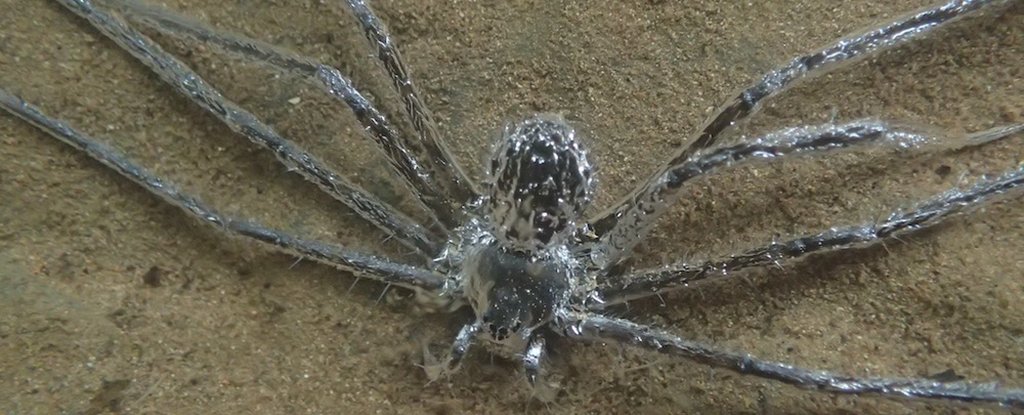For a frog or other amphibious animal, fleeing into the water and hiding for an extended period from predators is the norm, but it's a bit of an unusual tactic for a spider.
Yet, a newly discovered species, Trechalea extensa, has this exact trick up its eight furry sleeves – and coming up for breath is seemingly not required.
For an ordinary spider, the cost of being submerged could be particularly high. There's heat loss, a lack of air, different predators under the water, and no way to eat.
But in a new study, researchers describe a tropical spider found next to a stream in Costa Rica, which was observed to stay underwater for a whopping 32 minutes.
"For a lot of species, getting wet and cold is almost as risky to survival as dealing with their predators to begin with," says Binghamton University biologist and lead author of the new study Lindsey Swierk.
"Trechalea spiders weren't previously known to hide underwater from threats – and certainly not for so long."
Back in July 2019, the researchers were near a stream at the Las Cruces Biological Station in the Puntarenas Province of Costa Rica, when they saw a T. extensa sitting on a boulder next to a small stream, part of the Java River.
When the researchers tried to capture it, the spider took off over the surface of the water – which these spiders are known to do. After the researchers continued the pursuit, the spider did something surprising – it scuttled down a rock and submerged itself around 25 centimeters (10 inches) under the water, and then stayed there… for over half an hour.
Unfortunately for the enterprising spider, when it emerged the researchers did manage to capture it, but the team also managed to film and photograph the weird underwater display.
Although their observations are based on only one spider encounter so far, the secret behind this ability seems to be a 'film' of air surrounding its whole body. The hairs covering the spider are so water-repelling, they can seemingly produce a kind of shield out of air to protect the spider from the harshness of the water.
"The film of air surrounding the spider when it is underwater appears to be held in place by hydrophobic hairs covering the spider's entire body surface," Swierk says.
"It's so complete that the spider almost looks like it's been dipped in silver. The film of air might serve to keep the respiratory openings away from water, since these spiders are air-breathing. The film of air might also help to minimize thermal loss to the cold stream water that the spider submerges itself in."
The research has been published in Ethology.
- Karlston
-

 1
1



Recommended Comments
There are no comments to display.
Join the conversation
You can post now and register later. If you have an account, sign in now to post with your account.
Note: Your post will require moderator approval before it will be visible.